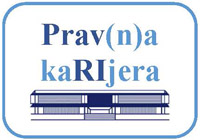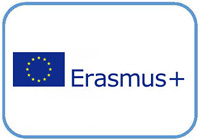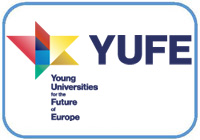Study
Lifelong learning and Summer schools
The Faculty, together with the study programmes which represents its primary activity, gives importance to the development of lifelong learning programmes which have been reported missing by the labour market.
Furthermore, for graduate and postgraduate students the Faculty organises different summer schools.
Lifelong Learning
Summer Schools
Duration of the Study
Classes are held during two semesters. The schedule of classes will be adjusted to employed students, whereas each course shall be realized through intensive block of classes held during one or two weekends. Total duration of this study programme is 18 months.
Employability and Possibility of Study Continuation
Applicants who complete this study programme have the following employment possibilities:
- in the companies (in the executive board, as compliance officers, in department for financial dealings, in department for corporative law etc.);
- in bodies of public administration and local self-government which are competent for dealing with economy subjects;
- in regulatory agencies which supervise financial aspects of companies’ conducting business (Croatian Financial Services Supervisory Agency, Croatian National Bank);
in the judicial system (lawyers specialized for commercial law, judges of commercial courts, public prosecutors dealing with economic crimes etc.)
Students who wish to continue studying on a higher level, may embark on doctoral studies. Those applicants can transfer in chosen doctoral study in total 60 ECTS credits achieved during this study programme.
Enrolment requirement
Candidates holding a university degree whether in former four-year university study or in current five-year university study programme may enrol. It is requested that applicant is fluent in at least one foreign language (ability to read foreign specialized literature and to master basic communication skills relating to adequate specialized area). Likewise, it is desirable that the candidate possesses working experience connected with companies (for instance, employees of companies, members of the executive board of the companies, employees of local administration who solve requests made by the companies, judges of commercial courts, state lawyers, lawyers etc.).
Candidates who do not possess such working experience, enrollment may be allowed under the condition that they have a grade-point average of at least 3,50 during their previous study on university degree level or two letters of recommendation by university professors.
Completion of the Study
Study ends with final thesis.
Structure of the Study
Students sign in four compulsory courses (20 ECTS credits in total) in each semester. In the first semester, students are obliged to sign in two elective courses (6 ECTS credits in total) and to write one research paper (1 ECTS credits in total). Instead of one elective course in the first semester, student can choose to write additional research paper (1 ECTS credits in total) or to make a case-study (2 ECTS credits in total). By combining lectures and research contents in the first semester, students should acquire 27 ECTS credits in total.
In the second semester, students opt for one of the offered modules. Besides four compulsory courses, students also sign in one elective course. Students can choose among elective courses provided for different modules.
Lectures in elective courses are performed under the condition that at least five students took the respective course. Otherwise, in accordance with course coordinators, lectures may be replaced by consultations and mentor work with students.
Students are requested to regularly attend classes, actively participate and study from teaching materials, especially by solving tasks on their own initiative, using available data on the internet and other media etc.
After the lectures, students take written and oral exams/written exams.
Study outcomes, knowledge and skills gained upon the completion of the Study
Upon completion of this study programme students will gain skills, knowledge and competences about:
- types, legal characteristics, advantages and disadvantages of financing of the companies / corporations;
- types of financing available in the law of capital market;
- types and forms of secured claims which are used for certain types of financing;
- orms of restructuring available in the law of market competition and in bankruptcy law, together with advantages and disadvantages thereof;
- possibilities of companies’ entering into market competition in sectors which maintain process of liberalization;
- features, structure and dynamics of financing public projects, as well as understanding concept of Private Public Partnership;
- tax aspects of conducting business of the companies and avoidance of double taxation, as well as basic features managerial accounting;
- basic concepts of psychology of organization as well as psychology of communication as applicable in law;
- responsibility and liability insurance of persons who manage company business;
- criminal law protection of financial interests of the companies and their criminal responsibility;
- features of single European payment area and advantages for the companies;
- possibilities of using EU instruments of procedural law which facilitate cross-border settlement of claims and
- solving disputes with cross-border element before courts, together with issues of jurisdiction and competent law.
With the gained knowledge, skills and competences, students will be able to successfully choose appropriate sources of financing for specific needs of their company, all based on thorough comparison of advantages and disadvantages of each type of possible financing. Likewise, they will be able to take into account important aspects of establishing financial discipline in the company. Since companies are directed towards cross-border conducting of their business, students shall be able to apply legal instruments of European law which are available in representing companies’ interests. In that way, students shall gain comparative advantages in relation to other companies, especially when requesting fulfillment of companies’ claims through judicial system.
















